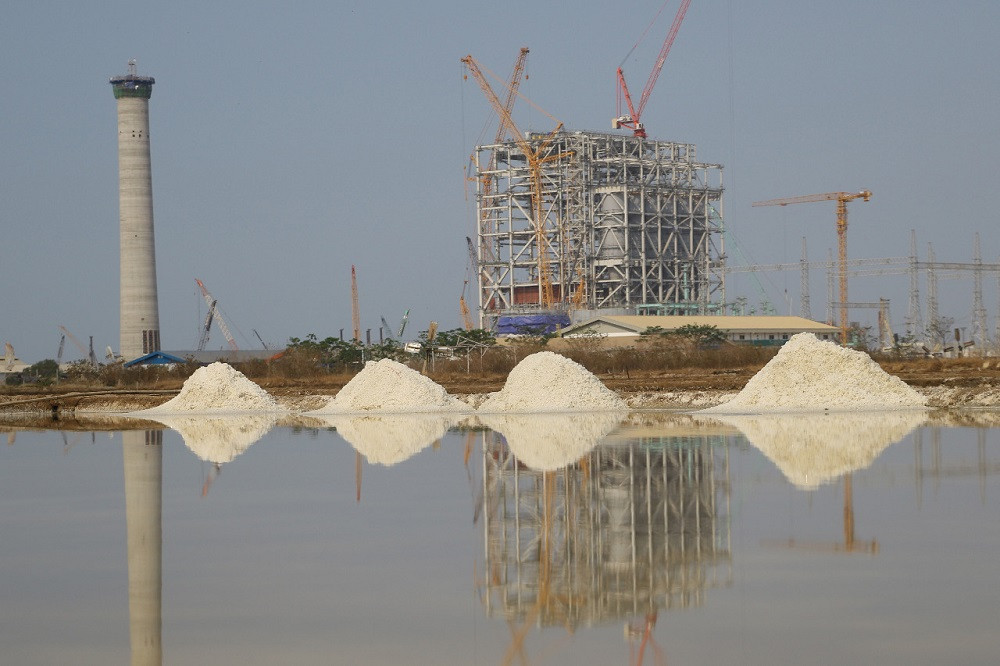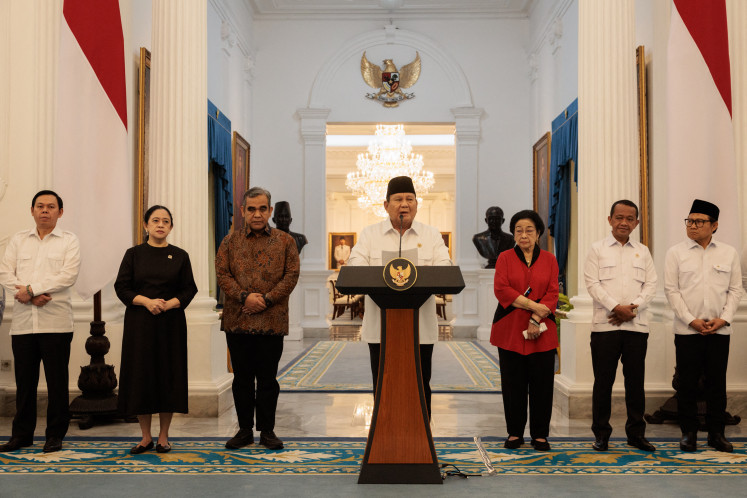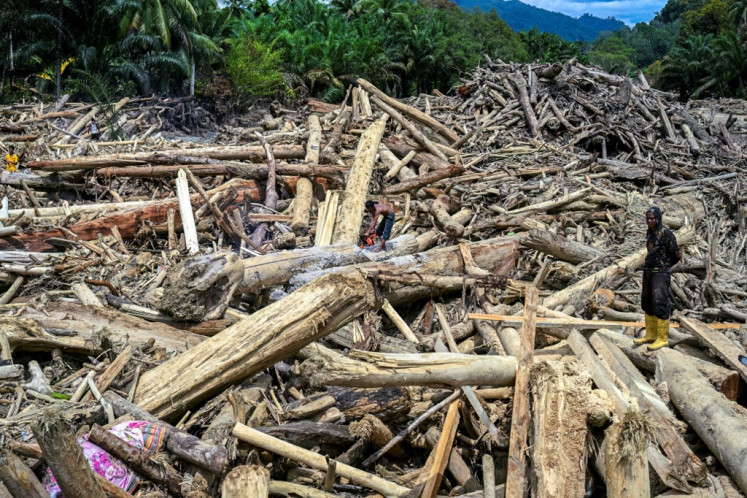Popular Reads
Top Results
Can't find what you're looking for?
View all search resultsPopular Reads
Top Results
Can't find what you're looking for?
View all search resultsCoaling it quits
Change text size
Gift Premium Articles
to Anyone
Government officials have sent mixed messages about the country’s net-zero emissions pledge and the future of coal.
The Energy and Mineral Resources Ministry’s electricity director general, Rida Mulyana, said the ministry was drafting a revision to its electricity procurement plan (RUPTL) to increase the share of renewables in the country’s energy mix to 48 percent, leaving 52 percent for fossil fuels. As it stands, fossil fuel energy accounts for 70 percent of the mix.
The ministry also released a report earlier this year that included a pledge to attain net-zero emissions in the power sector by 2050.
Just a few days later, Rida said that there was “no urgency” for the government to reveal any targets for net-zero emissions and that it would continue to operate existing coal plants until their “natural retirement” by 2058.
The Environment and Forestry Ministry has suggested that the country could reach its climate targets by 2070, but President Joko “Jokowi” Widodo has yet to make any pledges.
As the world’s fourth-largest coal producer and fifth-largest emitter of greenhouse gases, Indonesia’s reluctance to solidify its net-zero pledge is expected but very discouraging.
The global climate fight regained momentum this year after Joe Biden was elected president of the United States and immediately rejoined the Paris Agreement. The US’ withdrawal under Donald Trump had paralyzed the global effort, which saw no clear progress over the preceding four years.
The European Union has supported the US’ return to the agreement and has pledged that it will cut emissions, including from coal, by at least 55 percent by 2030 – the world’s most ambitious target – and will reach legally binding net-zero emissions by 2050.
The Biden administration has also pledged to achieve net-zero emissions by 2050.
With no clear plans from the Jokowi administration, Indonesia may be a stumbling block in the global fight against climate change.
During a virtual leaders’ summit on climate held by Biden in April, Jokowi said Indonesia needed technology and funding assistance to realize its climate commitments.
The country will require an estimated US$20.6 billion annually to take sufficient climate action to achieve a 29 percent emissions reduction by 2030, the target set in the government’s Nationally Determined Contribution (NDC) to the Paris Agreement.
Grants or clean technology investment could also help Indonesia reach its goal. These investments could be used to build more renewable energy power plants or to support the installation of clean coal technologies to help the country reduce its emissions.
All of these avenues are available and may be beneficial for foreign investors, especially developed countries, because Indonesia, with its large population and abundance of natural resources, is among the top investment destinations in Asia.
But without assistance from developed nations, it will be difficult for Indonesia to fulfill all its climate targets, despite being a significant driver of global economic growth. This is especially true during the pandemic, as every country battles both the virus and economic recession.










